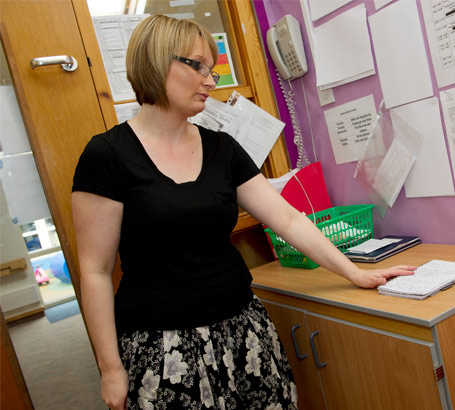
At this level you are already an expert and a professional. Consider your key skills and what makes you good at your job.
Which of those skills do you use in other parts of your life?
The key point here is that you have developed skills which are transferable and some of these you instinctively use without
frequent consideration.
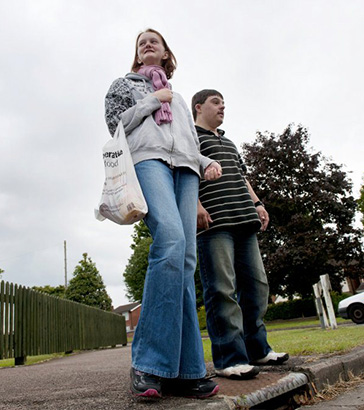
Professionals concerned with CLDD have many different
roles, each supplying a vital service to support the needs of individuals. No one person or profession can usefully work in
isolation as information needs to be shared; you need to work with other individuals. Likewise whole professions work with
other professions.
Working with those who have CLDD will always involve collaboration
with other colleagues both within your own profession and in a wide range of other professions. Of course, outside work you
also assume other roles: parent, driver, musician, etc.
Consider your present colleagues and which other professions you all interact with by giving and taking information and advice.
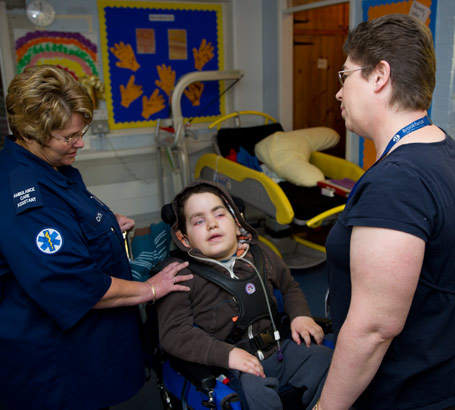
In our professional lives we have webs of support at all levels of teaching. This is particularly important when providing
for children with diverse and complex needs. The web of professionals provides the adhesive which binds services and individual
providers together.
Many professions combine to form a web of support to optimise the operation of each and all related professions so that teachers
are never alone in their efforts.
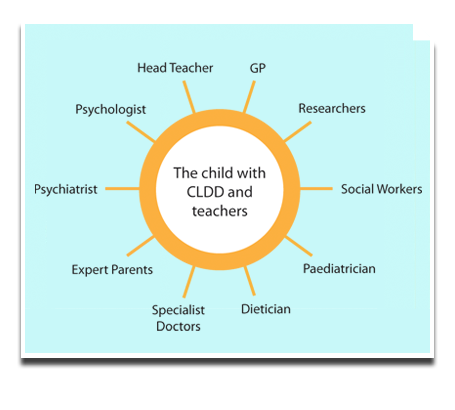
Which professionals have you worked with?
Which are missing from this web?
Suggestions
Other professionals could include:
- Art therapists
- Physiotherapist
- Occupational therapists
- Opticians
Return
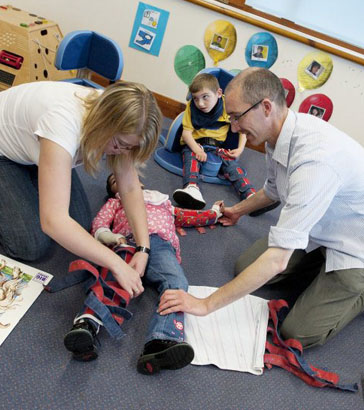
Compile your own webs of support corresponding to different times in your life, for example:
- A web of your childhood support.
- A web of your friendship groups.
- A web of your current professional support.